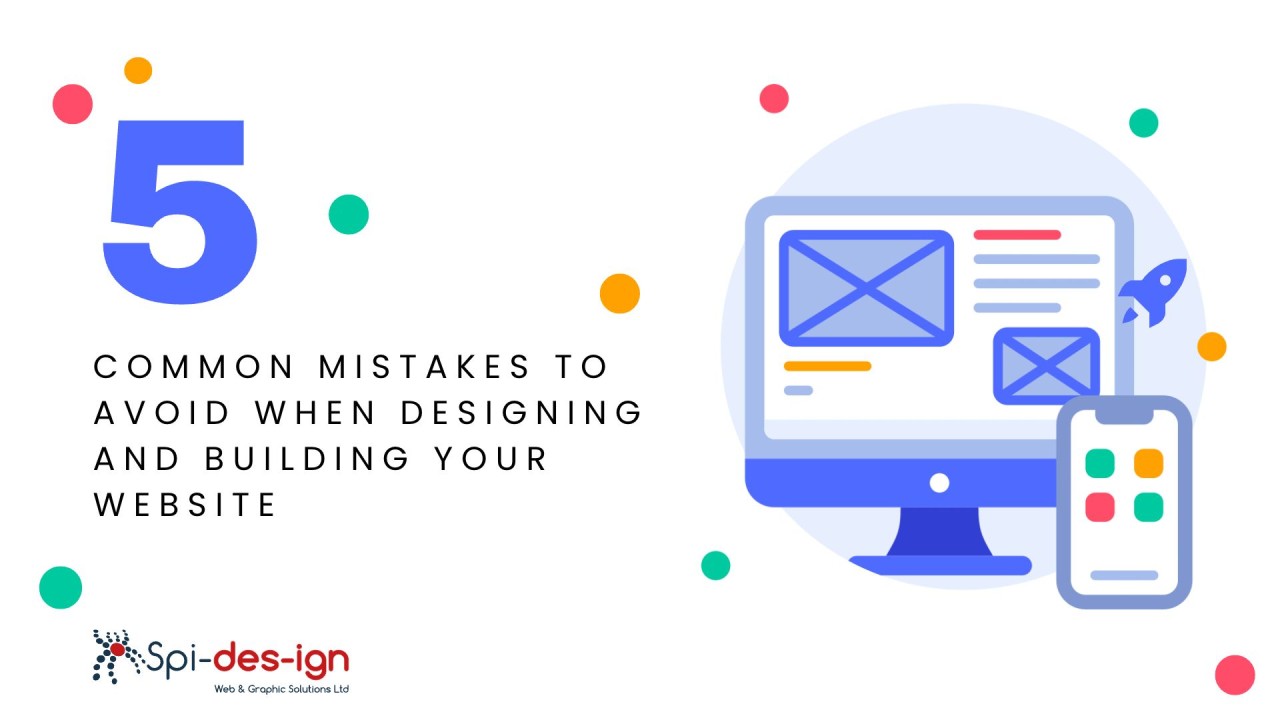5 Mistakes to Avoid When Designing a Website
Designing a website that’s both functional and visually appealing is critical for success. However, many designers and businesses make common mistakes that can hurt user experience and conversions. Here are 5 key mistakes to avoid when designing a website and how to fix them:
1. Poor Navigation
- The Problem: If users can’t find what they’re looking for quickly, they’ll leave your site. Confusing menus, broken links, and cluttered navigation are major issues.
- How to Avoid It:
- Keep the navigation simple and intuitive. Use clear labels for menu items.
- Limit the number of menu options to 5–7 for clarity.
- Add a search bar to help users find content faster.
- Use breadcrumbs to show users where they are on the site.
Pro Tip: Test your navigation with real users to identify pain points.
2. Ignoring Mobile Optimization
- The Problem: Over 50% of website traffic comes from mobile devices. If your site isn’t mobile-friendly, users will struggle to interact with it.
- How to Avoid It:
- Use responsive design so your site adjusts to all screen sizes.
- Optimize images and buttons for smaller screens.
- Ensure text is readable without zooming.
- Test your website on multiple devices and browsers.
Pro Tip: Use Google’s Mobile-Friendly Test to check your site’s performance.
3. Slow Loading Speed
- The Problem: Websites that take more than 3 seconds to load lose visitors. Slow pages frustrate users and hurt SEO rankings.
- How to Avoid It:
- Compress images and videos to reduce file size.
- Minimize code by removing unnecessary scripts and plugins.
- Use browser caching to speed up repeat visits.
- Choose a reliable hosting provider.
Pro Tip: Use tools like Google PageSpeed Insights or GTmetrix to analyze and improve load times.
4. Overloading with Content and Design
- The Problem: A cluttered website with too much text, visuals, or animations overwhelms users and distracts them from your message.
- How to Avoid It:
- Follow a clean, minimalist design approach. Use plenty of white space.
- Break content into short paragraphs, bullet points, and headings.
- Stick to a consistent color scheme and typography.
- Use visuals purposefully—every image or animation should add value.
Pro Tip: Focus on your core message and remove anything that doesn’t support it.
5. Weak or Missing Calls-to-Action (CTAs)
- The Problem: If you don’t tell users what to do next, they won’t take action. Weak or unclear CTAs lead to lost conversions.
- How to Avoid It:
- Place clear, action-oriented CTAs throughout your site (e.g., “Buy Now,” “Get Started,” or “Download Free Guide”).
- Use contrasting colors to make CTAs stand out.
- Position CTAs above the fold and at key points on the page.
- Test different CTA text, colors, and placements to see what works best.
Pro Tip: Make your CTAs urgent and benefit-driven, such as “Sign Up Now and Save 20%.”
Conclusion
Avoiding these 5 common mistakes will help you design a website that’s user-friendly, visually appealing, and optimized for conversions. Focus on clear navigation, mobile responsiveness, fast loading speeds, clean design, and strong CTAs to deliver a great experience for your visitors.






